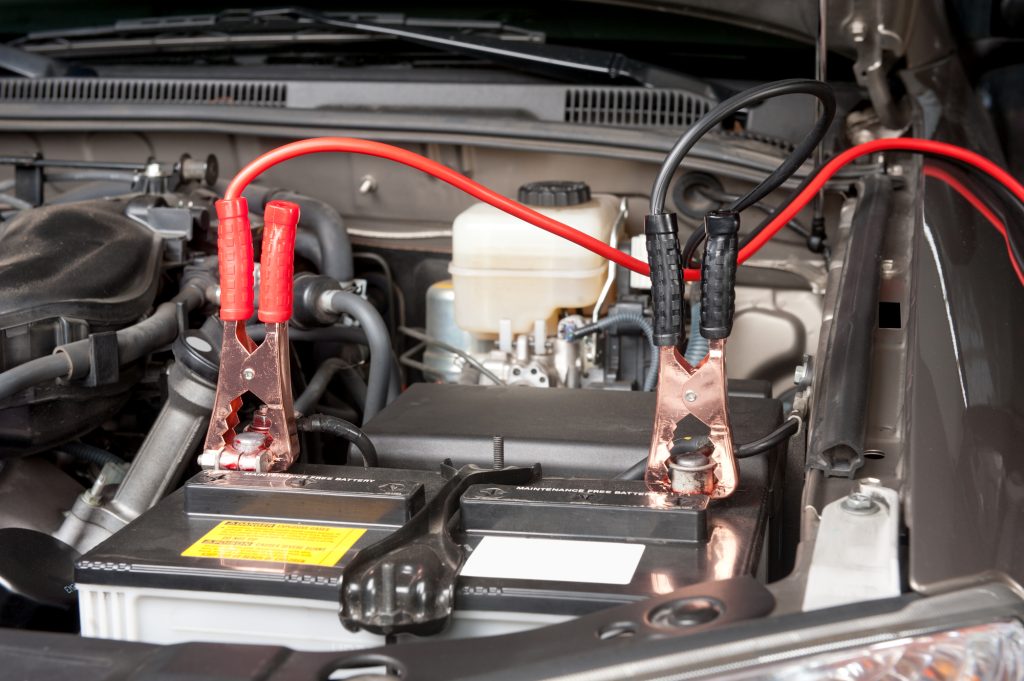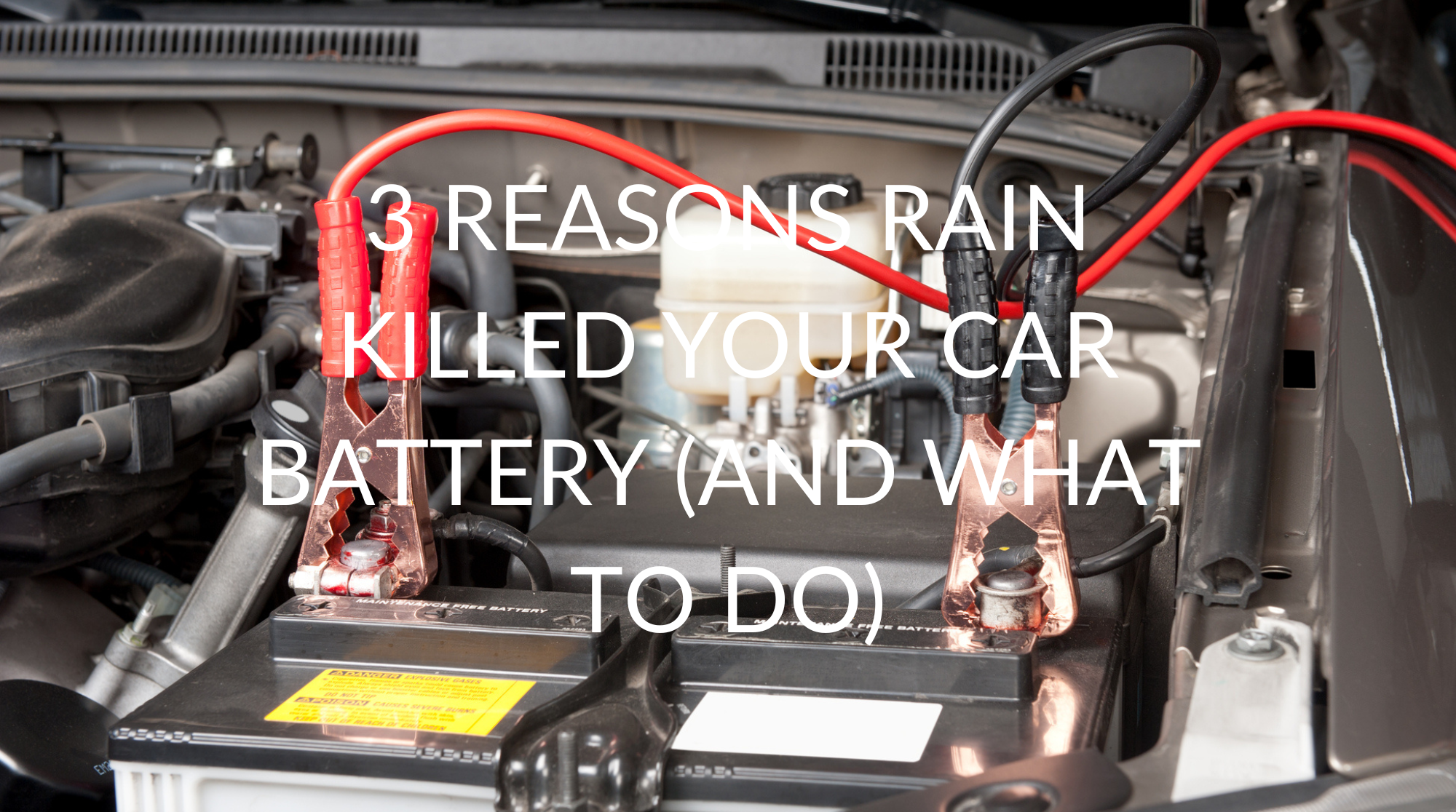Have you noticed that every time it rains, it seems to kill your car battery after? Well, you’ve found the right article. In this article, not only will you find out why it might not be a problem with the battery itself, but you’ll find out what the other problems could be, as well as, most importantly, how to rain-proof your car as best as possible.
Why Did Rain Kill Your Car Battery?
First of all, here are all the different reasons rain might be causing you car problems. Remember, just because the battery has stopped working doesn’t necessarily mean the battery is the problem.
There’s A Short Somewhere
Finding a short in your can be extremely difficult; however, if your rain keeps killing your battery, this could be the reason. If there’s an exposed wire in your car, then every time it gets wet, it could be shorting the battery. So the cables, grounds, and wiring harnesses should all be checked over to see if there’s exposure.
You should also measure the draw at each fuse to see if your battery is actually discharging from an unintended current draw.
A Faulty Alternator
If the battery keeps dying every time it rains, then a probable culprit is actually the alternator instead of the battery. In fact, whenever the battery is draining when you’re driving, then the chances are the alternator isn’t working properly.
If it’s raining, then you’re probably using a lot more of the electricity than you normally would (running the window wipers, lights on, running the heater), all of which could be causing the battery to expend more energy than the faulty alternator can produce.
There could also be a bad connection coming from the alternator as well, such as to the solenoid, battery, earth connections, and even the alternator body to the engine.
Lastly, the alternator belt could be a little bit too loose as well, which is causing less power to be generated. Because when the belt is slipping, wet conditions can make the problem worse.
A Low-Quality Battery
And lastly, sometimes the explanation is simply that you’ve had a low-quality battery installed in your car. While the better batteries are more expensive, they’re going to last a lot longer than cheaper batteries, so it’s well worth putting in the extra money to increase the life of your battery.

How Can You Protect Your Car Battery From The Rain?
To be honest, car batteries have come to a point where they don’t need to be protected from the rain too much. In fact, car batteries can get wet and handle the elements quite well. However, if you live somewhere that’s constantly rainy, then it can indeed be a good idea to make sure you’re protecting the battery (And the rest of the engine) as best as possible.
Here are all the different ways to protect your car battery!
Check For Corrosion
First of all, you should check for corrosion. If your battery is starting to corrode, then the power it is producing mate no be sufficient to power the car. The biggest sign that corrosion could be a problem for your battery is if you notice green/white stains around the negative terminal.
If you notice corrosion on your battery, then you’ll need to clean it to fix the issue. However, fortunately, cleaning the battery is incredibly easy. To clean the terminals, soak them in some distilled water and then take a toothbrush and begin scrubbing them to remove the residue.
Once you’ve removed the residue, you should then spray the terminals with an electronic contact point cleaner before scrubbing again to remove any residue that has been left over. Finally, dry the terminals thoroughly to stop any more corrosion from happening.
Make Sure The Terminals Are Fastened
You should also take the time now to make sure that the terminals are fastened properly as well. When the terminal isn’t screwed down properly, the risk of corrosion starts to increase. This is because the space between the terminals and the poles allows more gas to escape, and as this gas escapes, some of the residues will begin to materialize on the terminals.
Park In A Garage Or Shed
While this isn’t possible for everyone, if it is possible for you, then you should definitely park your car inside a shelter whenever you can. Not only will the shelter protect it from rain, but it will also help keep the car’s battery warmer as well.
However, on the flip side, if it’s hot already, it’s not such a good idea to leave a car in a hot garage, as this can also prove problematic to the battery.
Replace The Battery When Necessary & Keep It Well Maintained
Sometimes, it might just be time to replace the battery, and there’s not actually anything you can do for it. While you can remove corrosion from the terminals, the terminal cables can be harder. You should be taking your vehicle to be serviced regularly, at which point they should notice that the battery needs replacing. (Fortunately, though, this should only be every four to five years.)
Some ways you can tell it’s time to replace the car’s battery are when the car starts up slower than usual, the check engine light is on, the battery case has become misshapen, or when you can smell rotten egg (the smell caused by the gases created).
Make Sure Everything Is Turned Off Before You Leave
If you’re driving in the rain, it’s going to be a lot more likely you’re losing a lot more of your car’s electricity as well. So making sure you turn everything off when you leave the vehicle is one of the ways you can stop the battery from dying.
In particular, check to see if all the lights have been turned off. Because leaving the lights on overnight can be enough to kill the battery. Sometimes even not closing the door properly can leave the cabin lights on in the car, which will drain the batteries over time as well.
If you’re forgetful about turning things off in the car, you can always leave post notes somewhere you’ll look before exiting to remind you!
Regular Servicing And Maintenance
And lastly, regular servicing and maintenance are going to be imperative for keeping your car’s battery (and the rest of it) in good shape, reducing the chances of the battery breaking at some point in time. As a rule of thumb, your car should be getting serviced once a year, or every 12,000 miles.
Recap
As you can see, there are a number of different reasons the rain is killing your car battery. However, a lot of the time, the problem may not be the battery but something else entirely! So proper maintenance and care of your car is the best way to stop this from happening.
If you liked this article, make sure you check out the rest of the website! Otherwise, have a great day.

